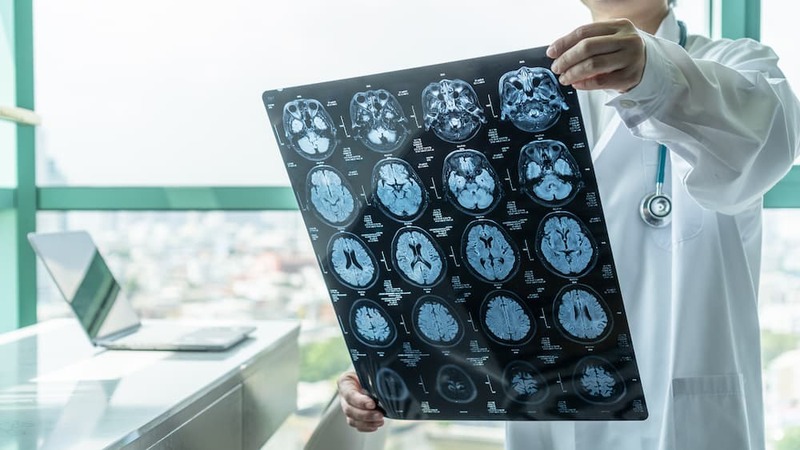
Car accidents occur every day on Florida roads. In 2021, over 250,000 people were injured in Florida car accidents. Some of the most devastating types of injuries are car accident head injuries. Brain injuries from car accidents can be life-altering. They can lead to long-term disabilities and permanent damage.
Below are the most common head and brain injuries in Florida car accidents and their symptoms. If you suffered a head injury from a car accident that another party caused, you could have the right to seek compensation for your injuries. Contact the skilled Florida car accident lawyers at Nonni Homola to learn more.
Get started with a free consultation by calling (850) 601-1111 or filling out our online form today.
1. Concussions
A concussion is a type of traumatic brain injury (TBI) that occurs when your brain experiences a sudden and forceful impact, such as during a car accident. In an accident, your brain may move inside the skull, resulting in temporary or permanent damage to brain cells.
Concussion symptoms can be immediate or show up a day or two later.
Symptoms include:
- Headaches,
- Dizziness,
- Nausea,
- Confusion, and
- Memory problems.
While many people recover from concussions with proper care and rest, some concussions can lead to more severe and long-lasting consequences. Don’t underestimate the potential long-term effects of a concussion. Seek medical treatment right away.
2. Contusions
A contusion is a bruise on your brain. It’s a more severe brain injury than a concussion. Brain contusions happen when you sustain a direct blow to your head or when your head is violently shaken, such as in a high-speed car crash. These bruises can cause bleeding and swelling in the brain, which could cause increased intracranial pressure and brain damage.
Contusion systems may include:
- Loss of consciousness,
- Seizures,
- Slurred speech, and
- Muscle weakness.
Depending on the location and severity of the contusion, treatment may involve medication, surgery, or rehabilitation.
3. Skull Fractures
Your skull consists of bones, so it’s possible to fracture it in an accident. Depending on the circumstances, you could experience several types of skull fractures.
The most common skull fractures include:
- Linear,
- Depressed,
- Diastatic, and
- Basilar fractures.
Linear fractures are the most common skull fractures and typically do not require surgery. However, depressed, diastatic, and basilar fractures may involve more severe brain damage. They may require surgery to repair the bone and alleviate pressure on the brain.
4. Diffuse Axonal Injury (DAI)
Diffuse axonal injury is a severe form of TBI that occurs when your brain experiences rapid acceleration or deceleration forces. This sudden change in force can cause the brain to stretch and tear, which leads to widespread damage to nerve fibers and brain cells. DAI is often challenging to diagnose, as it may not appear on standard imaging tests.
DAI symptoms can include loss of consciousness, coma, or persistent vegetative state. There’s no specific cure for diffuse axonal injuries. Treatment is primarily focused on supportive care and rehabilitation.
5. Traumatic Subarachnoid Hemorrhage (TSAH)
A traumatic subarachnoid hemorrhage (TSAH) is a severe brain bleed resulting from a rupture of blood vessels on the brain’s surface. The bleeding can lead to increased pressure on the brain, resulting in potential brain damage.
TSAH symptoms may include:
- Severe headaches,
- Vomiting,
- Confusion, and
- Temporary loss of consciousness.
Doctors often treat TSAH by prescribing medication to control blood pressure. If this doesn’t work, the injured person might need surgery to remove the blood.
6. Coup-Contrecoup Injury
A coup-contrecoup injury is a unique type of car accident brain injury because it’s like having two injuries in one. It occurs when the brain experiences a violent back-and-forth motion. This causes the brain to slam against the inside of the skull, resulting in injuries at the initial point of impact (coup) and the opposite side of the brain (contrecoup).
Symptoms of coup-contrecoup injuries may include:
- Headaches,
- Dizziness,
- Nausea,
- Memory problems, and
- Difficulty concentrating.
Treatment typically involves managing symptoms, providing supportive care, and monitoring for complications.
7. Intracranial Hematoma
An intracranial hematoma is a potentially life-threatening condition where blood collects inside the skull, creating pressure on the brain. This type of injury can result from a direct blow to the head or rapid acceleration and deceleration forces. There are several types of intracranial hematomas, such as epidural, subdural, and intracerebral hematomas.
Symptoms can vary depending on the type and location of the hematoma but may include:
- Headaches,
- Confusion,
- Drowsiness,
- Weakness, and
- Seizures.
Intracranial hematomas may require emergency surgery to relieve pressure on the brain and remove the accumulated blood.
Contact a Florida Car Accident Lawyer
Car accident head injuries can have severe and devastating consequences. It’s important to understand common head and brain injuries and their symptoms. If you or a family member suffered a head or brain injury from a car accident in Florida, speak with a skilled Florida car accident lawyer.
The car accident attorneys at Barrett Nonno Homola & Ferraro have helped clients like you pursue compensation for car accident head injuries. We understand the severity of these injuries and will work tirelessly to help you fight for the compensation you deserve. Contact our office online or call (850) 601-1111 today for a free consultation.

